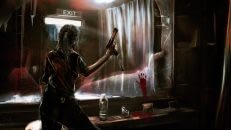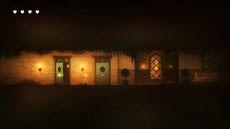‘Sequence’ Review – Getting Down With Your Bad Self
A tried and true method for creating new games is to take mechanics from several previous games and combine them into one. This technique has given us such titles as Mirror’s Edge and InMomentum (platforming + FPS), Dungeon Defenders and Orcs Must Die (tower defense + FPS), Nuclear Dawn, Natural Selection, and Savage (FPS + RTS), and now, for better or worse, Sequence (Dance Dance Revolution + Puzzle Quest). Of course, summing up our subject like so would be a little unfair. It’s one of the most peculiar games ever produced, primarily do to the harsh contrast between number-crunching battle and rhythm-matching-button-pressing.
If you’re a dance game veteran, (particularly Stepmania) you’ll have a head start on Sequence, since you’ll already have a sense of rhythmic timing. However, even with this head start, you’ll have a fair amount of adjusting to do. For example, levels in Sequence are structured not so much as endurance tests but as combats with monsters that will continue until one of you dies or the song runs out. The way you fight the monsters is the next big difference. In a typical rhythm game there’s only one stream of arrows or notes on the screen at a time. This limitation has proven manageable and enjoyable in a wide variety of games.
Where Sequence departs from this formula is in having three arrow tracks for you to cycle between. The first allows you to cast spells by selecting them with your non-finger-dancing hand which sends a short sequence of arrows down. If you hit them all, then the spell is complete and does damage, heals you, or any of the other typical magical effects. The second track is enemy attacks—hit the arrows and don’t take damage, much like traditional Dance Dance Revolution. The third track is the mana track, and if you hit any of the constant stream of arrows here you’ll regain a small amount of mana for your spells.
But of course what would any decent game be without some context for the action. Our unlucky hero this time is Ky, a twenty-something student ripped from reality to play a survival game – perhaps he could say hi to Neku Sakuraba along the way. Upon waking up, Ky finds himself in a giant tower divided into 7 floors of difficulty, to the summit of which he must battle using the aforementioned arrow tracks. Helping him out is the voice of an apparently lovely lady named Naia, guiding his actions through a network of loudspeakers – a sort of reverse jigsaw killer.
The most notable aspect of the duo’s interactions is that they are both sarcastic in the extreme. Although these two are unflappably sardonic, the story sections are frequent enough to advance the story at a steady pace and short enough to keep the whole experience from getting tedious. As a plus, the voice acting is quite good with one possible exception in the first floor’s boss. One thing that could be called lacking is the musical selection. About an album’s worth of songs are used to populate more than twice as many battles, and some of the themes might get tiresome if you just sprint through the story. Since the heart and soul of any game based around counting to music is music, this is a little worrying.
Given the above, can Sequence be called a good game on its own merit? Certainly. While some of the more sluggish elements of console RPG’s seem a little out of place next to the more immediate goal of pushing arrow keys, the gameplay functions well as a combination. Long-term planning in item and spell selection gives tangible advantages when facing a giant bug skeleton. Plus, being able to decide when and what you want to fight allows for a greater sense of control than stereotypical random encounters. Sequence is a fresh experiment in design and worth a look, particularly if you’re an old hand at rhythm games. Just don’t try to play it with a dance pad and controller unless you intend to take pictures.
More information on Sequence can be found on the official website. Purchases can be made on Steam and the Xbox Live Marketplace.
Review summary Pros:
Original gameplay, good pacing
Cons:
Paltry music selection
Rating: 79%






